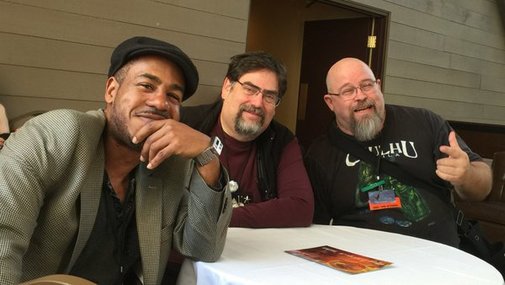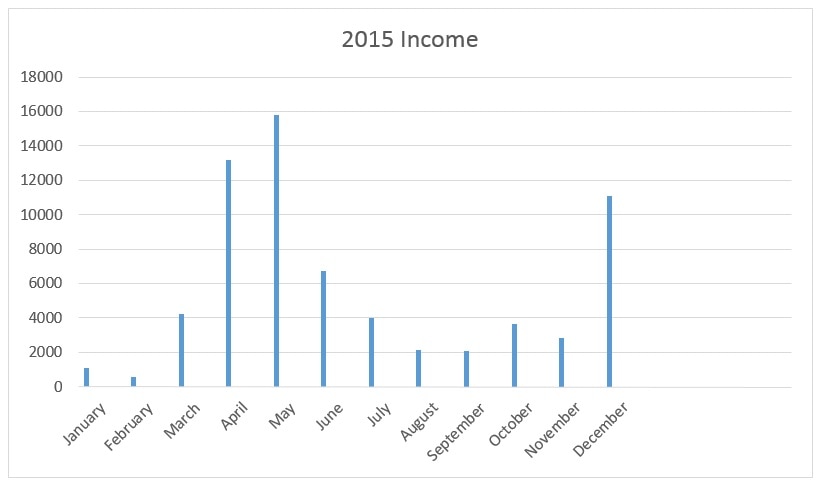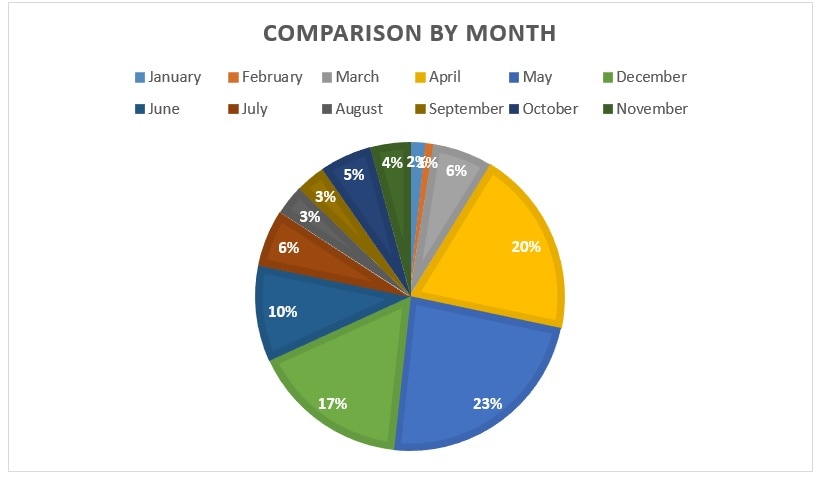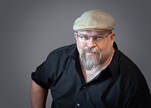|
How I got an agent… So, how did this happen? What led me to sign with this particular agency? Who did I know (because you have to have contacts in this industry!)? Well, like a lot of stories, it starts kind of randomly. I was at NorWesCon, and I’d just gotten out of a panel, and I was waiting for the next one on my list to start. Across the hall, two guys were talking about the changes in the publishing industry, and new genres that one of them was interested in, including fantasy and urban fantasy. Well, I just so happen to write in that genre, so I deftly joined their conversation. Somewhere along the way, we all traded business cards, and I learned exactly who I was talking to: Trodayne Northern, from Prentis Literary, and Lawrence M Schoen, a Nebula nominee for science fiction. As we went on, I mentioned that business was so good for urban fantasy for me that I had out-earned Jim Hines last year, (but quickly pointed out that I hadn’t out-SOLD him). It was about here that we decided this conversation was a lot more interesting to us than whatever the panel was on, so we wandered over to one of the little sitting areas, commandeered a table and proceeded to talk about publishing, self-publishing and sales. At the end of things, Trodayne invited me to have dinner with him the next night so we could talk further, and I could meet the other two agents from Prentis. So, the next night, I pitched some of my upcoming work over dinner, and they told me about what they had in mind to help capitalize on what I had already done to get me the best deal possible going forward. I’d already done my research on them, and I knew by then that they had represented Patricia Briggs. They asked to see some of my current work, and for something from my pipeline, which of course I sent them immediately. The thing was, as much as it actually was a business meeting over dinner, it also felt like I was having dinner with friends I’d also just happened to be doing business with for years. They answered a lot of my questions without me having to ask. I walked away feeling pretty positive about things. So, NorWesCon came to a close, and I went home feeling pretty good about my career. And the truth was…I hadn’t shown up intending to pitch to an agent. Over the next few weeks, we exchanged a few emails, as Trodayne and Leslie hit other conventions leading up to the Nebula awards in Chicago. Then, on a Wednesday afternoon as I was driving out of Springfield on my way to X-Con, my phone rings, and it’s Trodayne and Leslie. I pulled over to take that call, and got the news I think pretty much every author wants to hear: They wanted to represent me. We went over the details for a few more minutes, and I resumed my journey on cloud nine. I signed the contract a few days later, and made the announcement today. Now it’s starting to feel real. There are a few things I’d like to mention. First thing to remember here is that I didn’t come to the table with just a manuscript. When I showed up to NorWesCon in late March, I was already writing full time, with six books of my own across two series, and a seventh that was a spin-off from another successful series. I showed up with a solid base of readers and a track record of being able to earn with my work. I gave them a solid set of numbers to work with. Second, while I showed up at NorWesCon with only one contact, I left with half a dozen. A lot of folks say it’s who you know in this business, and I think that knowing the right people can be extremely helpful. The thing is, a lot of folks also seem to think that if you don’t have contacts, you’re out of luck. The truth is, you can and will make them as you go. Just ask my friend Ronnie Virdi, who has recently made friends with Jim Butcher and Kevin J Anderson. So, yeah, contacts are important, but just because you don’t have them doesn’t mean you can’t make them. You just have to get out there and talk to people at conventions. Finally, kind of a double point. Don’t give up hope and keep your options open. You never know who you might meet or what might happen. So keep your business cards with you, keep a quick pitch rehearsed and stay professional. Trodayne Northern (l), Lawrence M. Schoen (c), Me (the dorky one on the right)
0 Comments
For the past few years, Jim Hines and John Scalzi have done blog posts where they talk about how much they made that year. I figured this year, it was my turn. They also use pie charts to show certain things, and who doesn’t like pie? So, I might find a use for one, too. Maybe a graph or two, even! Because numbers. First, a little background. In 2014, I released my first self-published book, Zompoc Survivor: Exodus. It did pretty well, selling about 2500 copies or so its first month. All told for 2014, I made a little over $7,000. Not a bad first year. As the year ended, I decided to release my Demon’s Apprentice series again after getting the rights back from the publisher, and it started off reasonably well. But nothing prepared me for January of 2015, when The Demon’s Apprentice started to take off. And I was even less prepared for what happened in February, when Page of Swords blew its predecessor out of the water and hit #1 on the Paranormal chart on Amazon. The rest of the year was a bit of a roller coaster ride, and I’ll chart it with you. All told, before taxes, I made $67,384 in 2015, which is only a little less than what Jim C. Hines made, if you add in what he made before his agent’s commission. Now, before that sounds too braggy, remember that since his royalties are from traditional sales, he probably sold a metric ton more books than I did. My guess would be that he sold at least three to four books for every copy I that I sold, which is why agents and big publishers aren’t kicking down my door just yet. Earnings doesn’t equal salability. Products and Distribution What this represents is a total of six books in two series sold exclusively through Amazon. After a certain point roughly half of this income represents revenue from Kindle Unlimited. The series are the Zompoc Survivor series and the Demon’s Apprentice series. The genres are post-apocalyptic/dystopian and YA paranormal respectively. Most of my revenue comes from the Demon’s Apprentice series. In fact, every month where I earned more than $10k corresponds with or closely follows a release in that series. While my career is proof that you can make it by selling solely through Amazon, that may not be the path for everyone. But it sure seems to work with YA paranormal and zombie novels. Later on, I may go with a wider distribution, but for now, this is working. Breakdown by Month Below is a chart that shows my total income each month. The thing to remember is that the month I earn the money is two months after the sales have actually happened. So, January is showing what I earned in November, February shows what I earned in December and so on. So, as you can see, my income varied greatly by month. The chart below breaks it down as a percentage of the annual amount was earned in a given month.
One thing you can easily see from both charts is that more than half of my income came in three months. What happened in those months? Oh, that part is easy: I had book releases around those times. Demon’s Apprentice in late December, Page of Swords in late February, ZS: Odyssey in August and Vision Quest in mid-October. And between book releases, you can see how my income went down. Now, some may argue that my income drop also was most pronounced during the summer, which is typically a dry time for self-published authors. I released the third in the Zompoc Survivor series in August, which caused the small jump in October, so that could also add weight to that line of reasoning as well. Another thing I learned in looking at this is that for me, a book release has a strong cycle of about two months, and then things drop to a much lower level, one that stayed pretty steady between books. In a way, this kind of mirrors what traditional publishing sees, I think, a strong start and then a drop off after a month or two. The difference is that my books stay available on line after that, which is where my main customer base is, while traditional books, unless they do REALLY well, tend to fall off the shelves after that big sales period (and traditional authors see returned copies come out of their royalties). So this is another place where I think I tend to have an advantage over a traditional author, because I don’t have that drain on my royalties. My physical books are print on demand. So, like a traditional writer, I have that bigger influx at the beginning, then I’m in the trough between books, only I’m still making a little money. Handling Finances One thing that I learned this year was patience. While February ended with more than $10,000 in sales, I didn’t see that until the end of April. That was a long sixty days. As soon as that hit, and I knew I had another fifteen grand on the way, I was at a point where I could quit my job, since I would have what I made in a year at that job essentially in the bank before I hit the middle of the year. From there, I knew I had a bit of a cushion if I needed it, and I kept that buffer in place. And as soon as I DID have the full amount in my hands, my wife and I sat down and figured up our total bills for a month, and I set aside enough to cover my half of them for the rest of the year in a completely separate account. All of our bills were set to autopay, and overall, we didn’t change our lifestyle in a lot of big ways. We still live like I made what I used to. If I had to point at one big change in this year, it’s been that we just haven’t had to worry about money. My largest new expense was a decent used car for going to conventions. No new jewelry, no long vacations or any other huge expenses, and no sudden move to a bigger house. Getting There Up until May of this year, I worked in customer service for a credit card company (much like Dave Stewart in the Zompoc series, except mine wasn’t the hell hole his was). My work week was 34 hours, and I devoted those extra hours and more to writing. My wife worked overnights and in recent years, went to evenings, so most of my writing time happened between midnight and three or four AM. I used to put in about fifteen to twenty hours a week on writing. Since May, that number has gone up considerably, though I also end up putting in a more than a few hours each week on marketing and the nuts and bolts of actually putting a book together and managing my writing career. Convention appearances and speaking engagements take time to do right, or at least, they do for me. Conclusion Whatever conclusions you might draw from the numbers and patterns, looking at this does prove one thing for certain: as an independent author, you HAVE to publish regularly. And you have to keep your name out there where people can see you. Many of my sales during the summer came from convention appearances and just handing my card out to people. While I didn’t make it into the $100K range like some writers, I also acknowledge I’m something of an outlier, and that as much skill and effort as I put into things, there was still a measure of luck involved. But luck only does so much. Once you’ve been blessed with a little you have to do something with it, like write the next book and up your game a notch. For aspiring and current authors, I hope this gives you an idea of what is possible. A LOT of people have never heard of me, and that's okay. Enough people have that I can write for a living, and that's the important part. It IS possible to succeed at this without selling your soul or compromising your craft. You don't have to make the NYT Bestseller list in order to write full time. (It helps, though). Tomorrow’s a pretty big day for me. I thought I’d announce it now, though. Seems I told a few people something big was coming. Not a lot of people…well, okay…just everyone on my Facebook page. So, what’s the big deal? Tomorrow, I turn in my letter of resignation at my day job, and give them two weeks’ notice. On May 16th, I start my first day in my new career: author. Yep, I’m going to try to do this writing thing full time for a while. It wasn’t an easy decision, and it isn’t one I’m doing without some forethought and planning. So, if you’re a self-pubbed writer, don’t do this right after you’ve released your first book. Do it when you have a year’s worth of income ready to hand, and a few books under your name that are selling okay. So, tomorrow starts a period of transition and farewells. I’ve worked at my current day job for more than ten years, and as much as I’m looking forward to writing full time, some of those farewells won’t be easy ones. But, this is what I have always wanted to do with my life, so it’s a lot like hitting a Lifetime Achievement Goal in the Sims. I’m going to write for a living. I’ll be a full time writer. That’s some nifty stuff. Quest completed. Achievement unlocked.
Let me start by saying I love writing. No matter how you approach it, that's cool. Some folks are purists, and write for the love of storytelling alone. They don't care about making money for their work, and I really respect that. They're like Jedi, protecting truth and justice throughout the writing galaxy.
I'm not like that. I'm a Sith Lord to the purist Jedi that way. I write to get paid. My characters don't talk to me, they don't take over the story. My writing takes place whether I'm in the mood or not. I totally force art. I don't think my writing skill wanes with my mood or the absence of my Muse. And I've proven to myself that I can write almost anywhere, under almost any conditions. If I can write in the back of a moving car in the dark, I can write just about anywhere. And I write even when it's work. Because make no mistake, writing IS work. Writing an entire novel is a LOT of work. And sometimes I enjoy it more than other times. But even when I'm not having a total blast writing, I'm having a better day than I am working for someone else. Getting published, especially self-published, is even more work. If you want to write for a living, you have to be ready to do the work. I'm still working on making it to the point where writing IS my living, but I'm a lot closer to that point than I've ever been in my life. But don't think you can write only when the mood strikes you, that you can rely on a capricious Muse and still make a living as a writer. Content is king, and most readers don't care about your process. They don't care if your characters have stopped talking to you, or if your Muse has run off with your motivation to the Caribbean for a well deserved retreat. Readers want what you promised when you put out your first book: the next one. They don't buy your book simply because of your process. They buy it for a good story. So, when you want to get published, be ready to work for it. Want to make a living at it? Fire up that red lightsaber and chuck the romantic notions out the window. Welcome to the dark side. As an author, there are moments when your life changes noticeably. The first time you type "The End" on a rough draft and realize you just wrote a novel. The first time one of your books gets published. Holding the first copy of one of your books in your hands. Big, exciting moments.
For me, one of those moments happened on March 6th, 2014. What happened that day? Several things all at once. Zompoc Survivor broke the 10,000 ranking on Amazon. It also broke into the top 100 in the post-apocalyptic genre. It even spent some time in the top 10 in both the post-apocalyptic and the dystopian genres, and it was the number 2 new release for a week or so. Sounds like I'm bragging. Okay, yeah, I am. Just a little. Today I also realized that I'd passed a sort of milestone recently. See, as I write this, I am comfortably on the far side of eight weeks in that same zone. And this is where I REALLY brag, but not on myself. It's no coincidence that the same day Shawn Chesser mentioned Zompoc Survivor on his Facebook page that my ranking skyrocketed. Nor is it a coincidence that people have had good things to say to me about my cover after Tony Baker helped me refine the design for it. Every time David Forsyth mentions my book (and he has several times, not to mention giving a great review of it) more people seem to buy it. Likewise, Jeff Clare, the mastermind behind All Things Zombie page on Facebook has been a huge help in keeping ZS: Exodus and several other zompoc books visible with his efforts. Because of the terrific work Linda Tooch did proofing Zompoc Survivor, it also stands out among self-published books as being remarkably error free, and readers notice that. Danielle Pascale's ATZ Book Club has also been a huge help for me in seeing how readers experience the story, which helps me immensely in the process of writing the next book. Once again, it all comes down to community. The zompoc and post-apocalyptic community is very close knit, and without the help of a lot of people, I wouldn't have the success I've enjoyed. So, yeah...I have the beginnings of a writing career now. Because I'm part of a community. Today was a milestone event for me. I had to learn how to handle taxes on my royalties. All in all, it's pretty straightforward, but it was still something I didn't know until now. But it's cool that I'm making enough in royalties that I have to deal with it. Along the way, I got to have one of those cool conversations that I've dreamed about having as a writer. I've been published since 2011, and I finally feel as if I'm "making it" as an author. I knew I'd get here, but it's nice to be able to see my progress as a writer. Today, if I had to give any advice to an aspiring writer, artist or any other creative person, it's that persistence pays off.
|
Ben Reeder
Author of the Zompoc Survivor and The Demon's Apprentice series. Occasional wit. Constant smart ass.
Vertical Divider
Archives
January 2020
Categories
All
The Books Books By Ben Reeder: The Demon's Apprentice The Page of Swords Vision Quest Charm School In Absentia The Verge Walker:Book 1 Zombies by Ben Reeder: Zompoc Survivor: Exodus Zompoc Survivor : Inferno Zompoc Survivor: Odyssey Ash Fall The Gathering Horde |




 RSS Feed
RSS Feed
